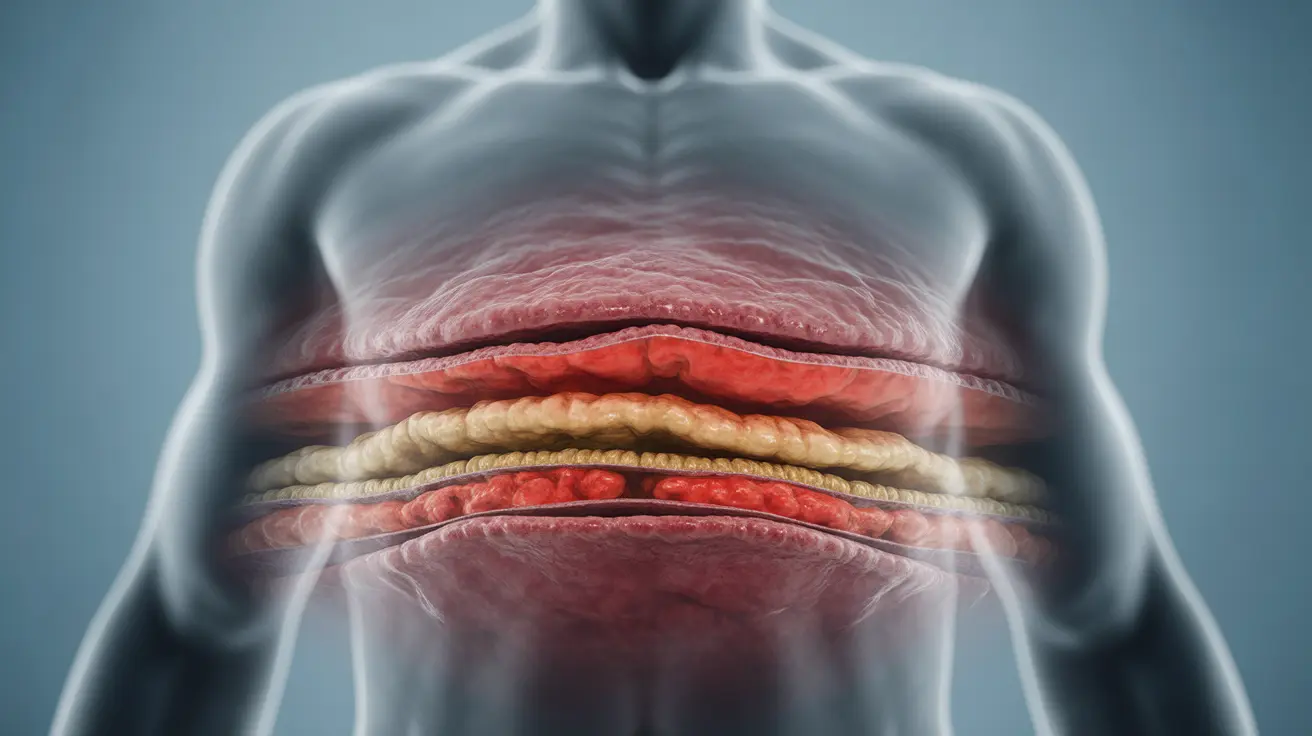Noninfective gastroenteritis and colitis are inflammatory conditions affecting the digestive system that aren't caused by infectious agents like bacteria or viruses. These conditions can significantly impact quality of life, causing various digestive symptoms and discomfort. Understanding their causes, symptoms, and treatment options is crucial for effective management.
While similar to infectious forms of gastroenteritis, these non-infectious variations often have different underlying causes and may require specific approaches to treatment. Let's explore these conditions in detail to help you better understand their impact and management.
Common Causes and Risk Factors
Noninfective gastroenteritis and colitis can develop from various triggers and underlying conditions:
- Food allergies and intolerances
- Medications (particularly NSAIDs)
- Autoimmune conditions
- Chemical irritants
- Radiation therapy
- Stress-related factors
Understanding these causes is essential for proper diagnosis and treatment planning. Many cases involve multiple contributing factors that need to be identified and addressed.
Recognizing the Symptoms
The symptoms of noninfective gastroenteritis and colitis can vary in severity and presentation. Common signs include:
- Abdominal pain and cramping
- Diarrhea
- Nausea and vomiting
- Bloating
- Changes in appetite
- Weight loss
- Fatigue
These symptoms may develop gradually or appear suddenly, depending on the underlying cause. Some individuals may experience periodic flare-ups with periods of remission.
Diagnostic Approaches
Healthcare providers use various methods to diagnose noninfective gastroenteritis and colitis:
Physical Examination and Medical History
Doctors will perform a thorough physical examination and review your medical history, including any medications you're taking and recent lifestyle changes.
Laboratory Tests
Blood tests, stool samples, and other laboratory analyses help rule out infectious causes and identify potential triggers or complications.
Imaging and Endoscopy
Diagnostic procedures may include:
- Colonoscopy
- Upper endoscopy
- CT scans
- MRI studies
- X-rays
Treatment Strategies
Treatment approaches typically involve multiple components:
Medication Options
Various medications may be prescribed depending on the underlying cause:
- Anti-inflammatory drugs
- Antidiarrheal medications
- Acid suppressants
- Antihistamines (for allergic reactions)
Dietary Modifications
Making dietary changes is often crucial for managing symptoms:
- Elimination diets to identify trigger foods
- Increased fluid intake
- Adding fiber or reducing it as needed
- Following specific dietary protocols based on individual triggers
Lifestyle Changes
Implementing lifestyle modifications can help manage symptoms:
- Stress reduction techniques
- Regular exercise
- Adequate rest
- Avoiding known triggers
Prevention Strategies
While not all cases can be prevented, several measures can help reduce the risk of flare-ups:
- Maintaining a food diary to identify triggers
- Regular exercise and stress management
- Avoiding known irritants
- Taking medications as prescribed
- Regular medical check-ups
Frequently Asked Questions
What are the common causes of noninfective gastroenteritis and colitis?
Common causes include food allergies and intolerances, medications (especially NSAIDs), autoimmune conditions, chemical irritants, radiation therapy, and stress-related factors. These conditions can also develop from multiple contributing factors working together.
What symptoms should I watch for if I suspect noninfective gastroenteritis or colitis?
Key symptoms include abdominal pain and cramping, diarrhea, nausea, vomiting, bloating, changes in appetite, weight loss, and fatigue. The severity and combination of symptoms can vary among individuals.
How is noninfective gastroenteritis or colitis diagnosed by doctors?
Diagnosis typically involves a combination of physical examination, medical history review, laboratory tests (blood and stool samples), and imaging studies such as colonoscopy, endoscopy, CT scans, or MRIs to rule out other conditions and confirm the diagnosis.
What treatments and lifestyle changes can help manage noninfective gastroenteritis and colitis?
Treatment usually combines medications (such as anti-inflammatories or antidiarrheal drugs), dietary modifications, and lifestyle changes. The specific approach depends on the underlying cause and severity of symptoms.
How can I prevent noninfective gastroenteritis and colitis, especially if I have known food intolerances or take certain medications?
Prevention strategies include maintaining a food diary, avoiding known triggers, managing stress, staying hydrated, following prescribed medication schedules, and regular medical monitoring. Working closely with healthcare providers to develop a personalized prevention plan is essential.




